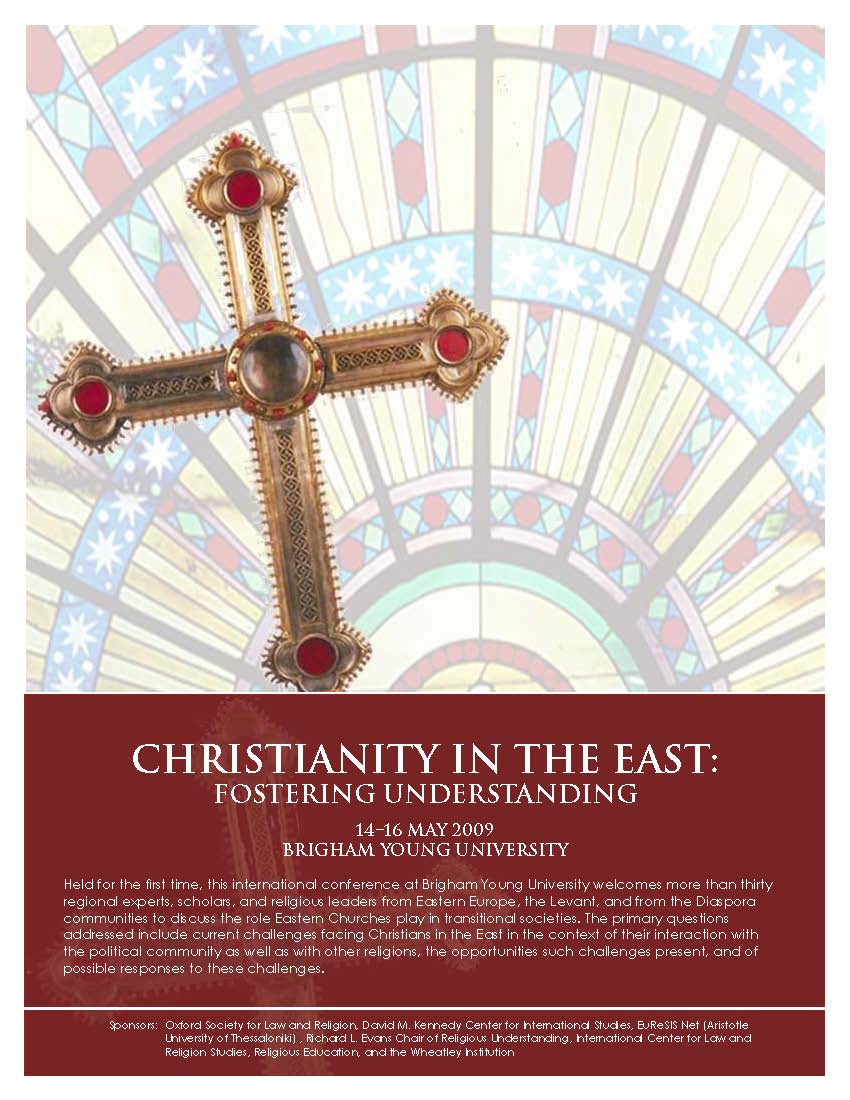Center Co-sponsors “Christianity in the East: Fostering Understanding” Conference, in Provo, Utah, 14-16 May 2009

Approximately thirty scholars and religious authorities, primarily from Eastern Europe and the Levant, with a few high-level experts from the diaspora communities of these denominations, met at the J. Reuben Clark Law School in Provo, Utah, for three days, 14-16 May 2009, to discuss the role of religion in bringing harmony to troubled regions. Participants have immediate experience with the problem of religion in its relation to the wider context of state and society. Some, such as those in Eastern Europe before the collapse of the communist regimes, have experienced the difficulty of working with a hostile state and processes of transition. Others have had to confront the questions of how those of different religions can work together to create harmony within and between their respective communities and their countries. Our question was: “Based on your experience and on your religious tradition, what are the problems which Christians face living with others in the world and how can Christians respond to those problems?”
Specifically, the conference sought to:
- Increase understanding of the nature and commitments of Eastern Christianity.
- Discuss how those within Eastern Christianity understand their relation to state institutions and to other denominations and religions.
- Consider how the nature of Eastern Christianity and its understanding of its relation to other institutions and religions plays out in concrete situations.
The conference attended to a set of practical issues: How do the various religious traditions interact with one another and the legal environment in which they find themselves? How do different churches coordinate efforts to solve shared social problems? What are the barriers to common efforts? How do church personnel deal with conflict resolution? What does Eastern Christianity offer with respect to such issues? What difficulties does it face? The program was fine tuned to take advantage of current cutting-edge experience and perspectives of the conference participants during the spring of 2009. Conference co-sponsors were Oxford Society for Law and Religion, David M. Kennedy Center for International Studies, Richard L. Evans Chair of Religious Understanding, Religious Education Wheatley Institution, and Brigham Young University.